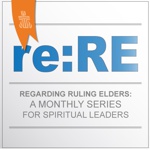“What a friend we have in Jesus, all our sins and griefs to bear!
What a privilege to carry everything to God in prayer!”
We sing this in our beloved hymn but we forget to add the qualifier that is the reality in most of our churches. “… except for praying out loud, extemporaneously, in front of a group. …”
Most of us are less than eager. You know what I mean. Someone asks for a volunteer to pray out loud. And we all know what to do: avoid eye contact, look busy, wait it out.
I did just that on Thursday night when our choir director asked for someone to pray at the close of our regular weekly rehearsal. It doesn’t matter if we’re a minister, a ruling elder, or a faithful church attender. If our roles don’t require us to pray out loud in front of a group, we rarely do.
But our hearts, our faith, our tradition, our constitution, our sacred text, and our God all tell us that prayer, in any form, is a very worthy endeavor. We need to act our way into a better place. And it’s not only for our sake, but for the sake of the church. The reality is that your voice is important to God, and uniquely important to your community.
Whenever I hear someone nervously praying out loud, I listen more closely. I am moved by the apparent risk the person is taking. I am grateful for a fresh voice. And I have a sense that the community is richer for this person’s prayer.
So how do we move beyond our accustomed reticence?
You could just plunge in. We learn by doing. That’s what my friend and colleague, Presbyterian pastor the Reverend Kamal Hassan, advises. As one of the most eloquent pray-ers I know, he says this:
Public prayer is something everyone can do. There’s no standard that you have to meet. You just need to be available to the Spirit. Our fear of not doing “right” can prevent us, but many people are surprised when they do begin to pray out loud. Be willing to cross that barrier or boundary, and let God use you.
The next time you’re in a meeting or gathering and someone asks for prayer, try this spiritual exercise: picture yourself getting singled out or called upon. What do you think or feel?
The more irrational the answer, the more likely you are to identify what gets in the way for you.
One friend says that, for her, she has an immediate sense of inadequacy, a feeling of “who am I that I should do this?” Never mind that she is an accomplished, retired educator.
For myself, last Thursday night I felt “on the spot.” When our choir director asked for a volunteer to pray, I noticed a moment of panic and a feeling of unwanted exposure. Never mind that I am someone who loves to preach.
It’s helpful to recognize or acknowledge our irrational fears, and then gently move past them with a plan or next step.
My educator friend came up with the idea of having a “crib sheet” with her, so the next time our choir director asks, she’ll be ready with an outline to guide her praying.
For myself, I know it will help me to pray ahead of time about the praying (!). And, it will be good for me to move into my spiritual director self, and to listen to where I think the group is, as a whole, and start a prayer from that perspective.
Praying out loud on behalf of a community is an act of servanthood. Rarely will we remember a prayer that we or someone else has prayed beyond that moment, but each time we do pray, we remind ourselves of who we are in Jesus Christ. We ground ourselves in being something beyond a secular organization. We affirm that we are a called and cared for people. We seek to tap into the power of the Spirit. And all this is in response to the love of our God for us.
May we move beyond our fears and doubts, and offer prayer to God on behalf of our communities in new ways.
The Reverend Dr. Diana Nishita Cheifetz is a spiritual director, serving lay leaders and clergy in the San Francisco Bay area, the U.S.A., and internationally. Her website is www.spiritualdirectionforpastors.com.
For more about the information provided here, please contact Martha Miller at martha.miller@pcusa.org and browse the Ruling Elders website.

